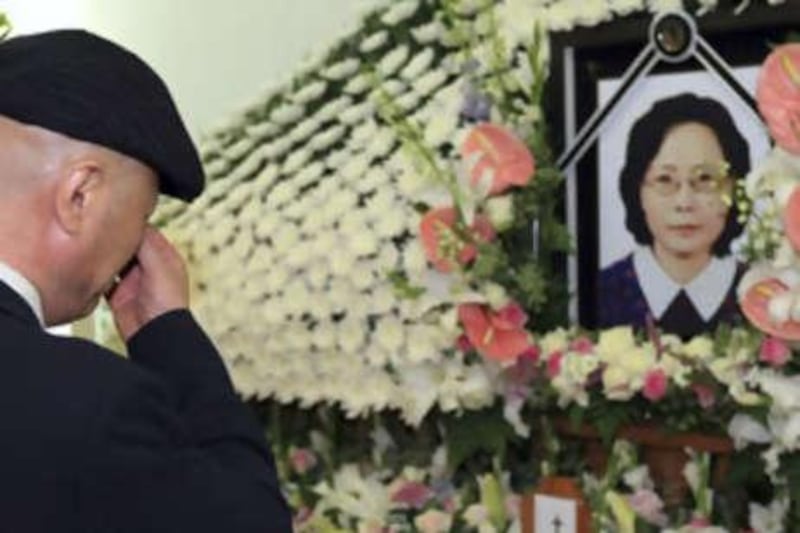North Korea today rejected South Korea's appeal for reconciliation talks, with the two countries locked in a bitter war of words over the shooting of a South Korean tourist in the North last week. Despite the killing on Friday, the new South Korean president Lee Myung-Bak went ahead with a public offer of negotiations with the North, extending an olive branch to ease tensions across one of the world's most dangerous borders.
But Pyongyang, which has blamed the South for the incident, said the "proposterous" offer "does not deserve even the slightest notice," and called Lee a "traitor" who was responsible for their strained relations. The female holidaymaker Park Wang-ja, aged 53, was on a visit to the South-funded Mount Kumgang resort in the North and was shot dead early on Friday after reportedly wandering into an off-limits military area before dawn.
The secretive North, which allows the Southern tourists virtually no contact with Northerners at the site, has refused to let South Korea take part in an investigation of the incident. Mr Lee knew about the killing but decided to make a speech in parliament on Friday anyway, proposing negotiations that the North's state-controlled Rodong Sinmun paper rejected today. "With deceptive words Lee Myung-Bak is trying to avoid responsibility for straining relations between North and South Korea and to ride out a [domestic political] crisis," it said. "That's a miscalculation."
It said Mr Lee's offer was merely "clumsy wordplay." Ties between the neighbours worsened after Mr Lee took office in February promising a tougher line on Pyongyang, although he appeared to soften his stance with Friday's proposal for negotiations. The North has suspended all government-to-government dialogue since he came to power. South Korea meanwhile said today that the tourist's killing was unjustifiable and urged the North to let it participate in an inquiry into the death of the woman.
"Whatever the reason may be, it cannot be justified," the Seoul government said. "It is the position of our government and people that the reason and truth should be thoroughly revealed because this is a grave issue concerning the life and safety of an innocent civilian." South Korea suspended tours to the resort after the killing - a move the North quickly branded an "intolerable insult". North and South Korea are still technically at war since the 1950-1953 Korean conflict ended without a formal peace treaty, and their border is considered to be one of the most dangerous military flashpoints in the world.
International talks on ending North Korea's nuclear programmes, which tested an atom bomb in 2006, appeared to make progress yesterday when the North pledged to disable facilities by the end of October and allow inspections. But analysts said the killing would strain inter-Korean relations further despite progress in the six-party disarmament talks. "Relations between the two Koreas will remain strained," the Dongguk University professor Koh Yu-Hwan said.
"However the cash-strapped North may not want a permanent suspension of the tour programme, a major source of hard currency." The South's unification ministry warned inter-Korean relations could worsen further unless a full investigaiton into the killing takes place. "If a full-scale fact-finding probe is not carried out, it will discourage all who expect an improvement in inter-Korean relations through dialogue," it said.
*AFP





